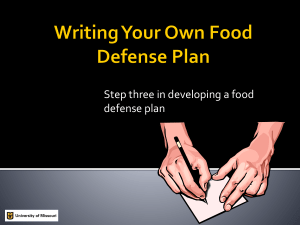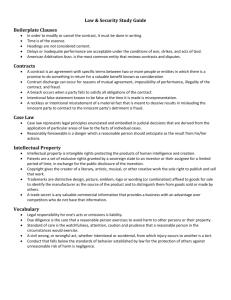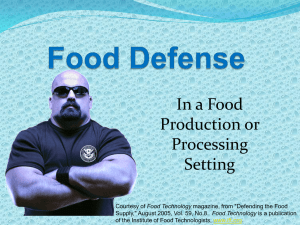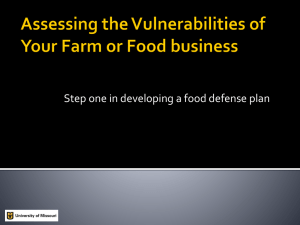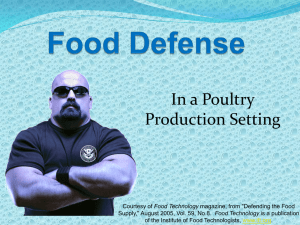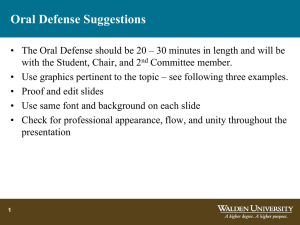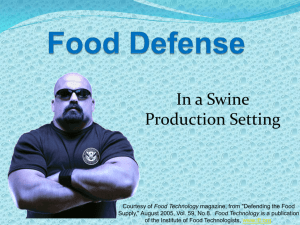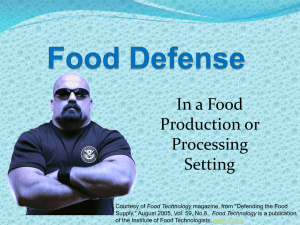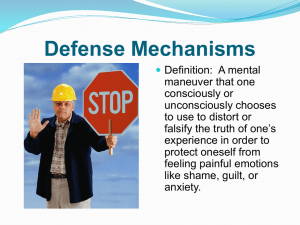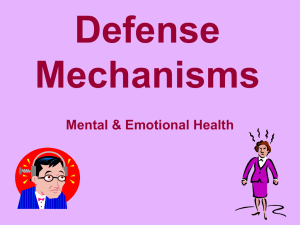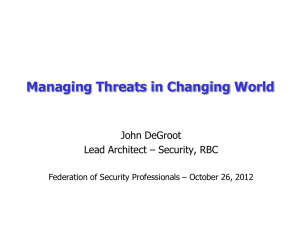Introduction: Protecting the Food Supply from Intentional Harm (.ppt)
advertisement
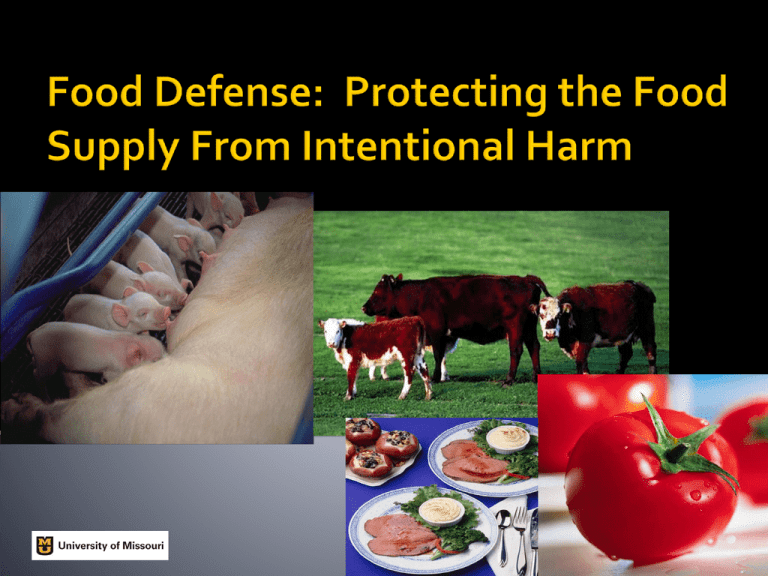
● ● Do you have workers who may have a grudge? Think like an individual that would like to harm your operation. By the end of the training you will be able to tell neighbors why you and they need a food defense plan. By the end of the day you will be able to write a food defense plan for your business and have a draft plan in hand. By the end of the day you will be able to write a response plan for your business and have a draft plan in hand. Vulnerability Assessment Countermeasure Development Writing a Food Defense Plan Developing a Response Plan Safest in the world? Recalls Spinach Tomatoes Peanut butter Melamine The U.S. government has declared the food and agriculture sector to be one of 17 critical national infrastructures vulnerable to intentional attack. Missouri ranks 2nd in the nation for number of farms ● Missouri ranks 6th in number of food processors ● Missouri ranks 14th in restaurant sales ● 1. Intentional delivery of a harmful biological or chemical agent to the food supply system could cause: ● Physical harm (illness or mortality) ● Economic disruption − Direct − Indirect − International ● Political unrest ● Psychological harm –loss of confidence in food supply Contaminated Wheat Gluten→ pet food Cats and dogs fall ill and some die Massive recall of pet food Contamination was intentional Waste pet food fed to hogs in 7 states 56,000 hogs quarantined Stinson et al., 2008 Stinson et al., 2008 Stinson et al., 2008 Develop a Food Defense Plan ● Determine Vulnerability ● Develop Countermeasures ● Write a Defense Plan ● Write a Response Plan
